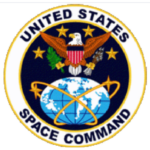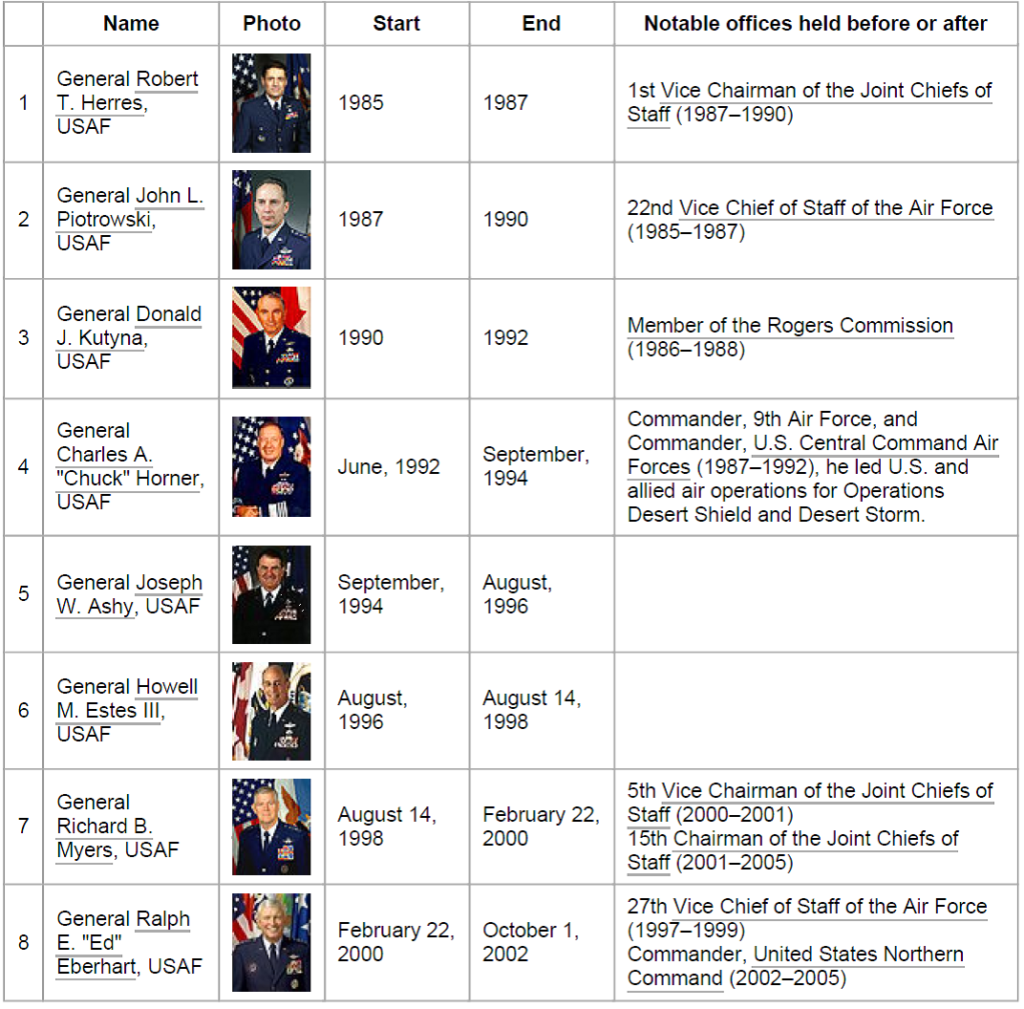We endorse the position of General John Hyten, USAF, Commander of U.S. Strategic Command, who recently testified, “We’re going to have a Space Force someday. I think what the Committee has to decide is when is that going to happen, and I think now is the time…you want to get ahead of the problem, not trail it, not come in response to a catastrophe. Get ahead of the problem.” ~ From an Open Letter from 43 former Senior Defense Officials
Congress shortly will be deciding the future of President Trump’s proposal for a Space Force, equal to and separate from the other Military Departments that are charged with “training, equipping and maintaining” their respective military forces.
The following paragraphs are from an open letter that I was pleased to sign along with 42 other former Department of Defense officials, who have served in both Republican and Democrat administrations. The below content of that letter indicates their hope to encourage congress to support the President’s initiative. Click here for the letter and a list of those who signed, led by former Defense Secretary Bill Perry and former Director of National Intelligence Dennis Blair.
*********************************************************
OPEN LETTER IN SUPPORT OF ESTABLISHING THE U.S. SPACE FORCE
May 2019
This letter expresses our strong support for establishing the U.S. Space Force.
The United States is the world’s leader in the exploration and uses of outer space. America’s preeminent position in space activities has contributed to the nation’s political prestige, international influence, scientific knowledge, technological advancement, homeland security, and national defense.
In addition, space contributes powerfully to America’s economic prosperity; indeed, practically every aspect of our daily lives is dependent on space capabilities. Consequently, U.S. National Security Strategy has for decades stated that freedom of access to and use of outer space is a vital national interest.
Foreign powers are seeking to undermine the United States’ leadership position in space. China and Russia are developing, testing, and fielding space and counterspace weapon systems that threaten our ability to use space for national security and economic purposes, jeopardize U.S. and allied military forces, and put the U.S. homeland at risk. America’s long-standing strategic advantage in space is eroding.
National security space organization and management has been a recurring issue for decades. The establishment of the U.S. Space Force as an independent armed service within the Department of the Air Force is a fiscally responsible approach to address the issue. The U.S. Space Force will organize, train, and equip forces to enable U.S. Space Command’s plans and operations, to include activities in support of other Combatant Commands and military services. The U.S. Space Force will develop military space culture and ethos; recruit, train, educate, promote, and retain scientists, engineers, and warriors with world-class space skills and talent; advocate for space requirements and resources; develop space doctrine and operational art; develop, field, and deliver advanced space capabilities; and steward resources to sustain America’s strategic advantage and preeminence in national security space activities. The establishment of a new military service for space is necessary for putting America on a path to effectively deter conflict from beginning in or extending into space, and, if deterrence fails, to defeat hostile actions and protect our economic and national security interests in space.
We endorse the position of General John Hyten, USAF, Commander of U.S. Strategic Command, who recently testified, “We’re going to have a Space Force someday. I think what the Committee has to decide is when is that going to happen, and I think now is the time…you want to get ahead of the problem, not trail it, not come in response to a catastrophe. Get ahead of the problem.” And we applaud the statement of General Joseph Dunford, USMC, Chairman of the Joint Chiefs of Staff, who recently testified, “My best military advice, given the importance of space and the consequences of not doing all we can to optimize the Department to move forward in space, would be to move out now with what might be the 80% solution, refine as we go, and the Committee will have an opportunity to provide oversight to address some of the issues that have been raised.”
Therefore, we strongly encourage action to establish the U.S. Space Force, to realize the full potential of space power and space capabilities in order to protect and advance U.S. vital national interests.
************************************************
I also call your attention to the penultimate sentence in this open letter, namely that:
[W]e applaud the statement of General Joseph Dunford, USMC, Chairman of the Joint Chiefs of Staff, who recently testified, “My best military advice, given the importance of space and the consequences of not doing all we can to optimize the Department to move forward in space, would be to move out now with what might be the 80% solution, refine as we go, and the Committee will have an opportunity to provide oversight to address some of the issues that have been raised.”
Indeed, General Dunford is already taking steps to reinstate the U.S. Space Command as a Unified Command, after an almost 20-year hiatus since it was abolished in the early days of the George W. Bush administration.
Click here for the March 26, 2019 Space News report that President Trump was nominating USAF General Jay Raymond (a Clemson Man, by the way) to head this important new command. He has commanded USAF Space Command for the past two years. See below the list of previous U.S. Space Commanders that he is follow, once confirmed by the Senate.
As I have previously discussed, this hiatus since October 2002 was astonishing since then Defense Secretary Donald Rumsfeld had chaired the Congressional Commission to Assess United States National Security, Space Management and Organization that had applauded U.S. Space Command and recommended that its role as a Unified Command be enhanced.
Click here for the full report of that Commission and click here for a January 11, 2001 Space Daily article that quoted the commission’s warning of a “Space Pearl Harbor” and referred to a number of views of the commission. In particular, click here for Chapter VI on “Organizing and Managing for the Future” that on pages 87-89 specifically called for the then Commander in Chief of U.S. Space Command to continue his key role. Yet within another year then Defense Secretary Rumsfeld abandoned the role his commission had advocated.
Moreover, if one quickly reviews this important report of a commission responding to the wishes to then Senator Bob Smith (R-NH) one will find many matters pertinent to the Pentagon’s current efforts to respond to the President’s Space Force Initiative — and I would argue for its leading edge associated with initiating efforts to build space based interceptors, based on a modern Brilliant Pebbles approach and technology.
Click here for my April 23, 2019 discussion of some of these issues, while lamenting the until now lethargic Air Force stewardship in moving toward a much needed space military capability — and the need for a modern Billy Mitchel to play the visionary role he played in the Army Air Corps in advocating air power.
He was ignored during his lifetime — indeed court-marshaled for his controversial advocacy, but he was proven right by Pearl Harbor (which he had specifically prophesied decades in advance). And after World War II, his views on air power’s important role were undisputable and well justified forming a separate service in 1947 — the United States Air Force, in which I was privileged to serve.
As I noted in that message, we don’t have time to recover from a Pearl Harbor attack (such as that suggested by the Rumsfeld “Space” Commission as mentioned above) with today’s technical capabilities.
One has to wonder why it has taken so long for us to reach what is the obviously sound position now being considered by the “powers that be” on Capitol Hill.
With that question in mind, click here for a very informative recent Forbes article by Retired USAF Lt. General David Deptula. He discusses the situation as one who has long considered these matters, including in his last post as the first Deputy Chief of Staff for Intelligence, Surveillance, and Reconnaissance (ISR), where he led the transformation of America’s military ISR and drone enterprises.
General Deptula’s timely article is aptly entitled “A Space Force That Would Make A Difference.” As Dean of the Mitchell Institute for Aerospace Studies and Senior Military Scholar at the Air Force Academy, he is an innovative thinker on defense, strategy, and information age operations.
Had he been given more sway while on active duty, I likely would trust the Air Force, my favorite service, to persue sound stewardship in setting the stage for a separate Space Force, as is President Trump’s goal. I hope his perspectives prevail in the current debates over the prospects for the President’s Space Force initiative. But I await proof that my favorite service has changed its generally unhelpful ways of managing our nation’s military space enterprise.
The fact that a number of former Air Force leaders signed the above open letter offers some hope this will be the case. But since Secretary of the Air Force Heather Wilson, herself a graduate of the Air Force Academy, has opposed the President’s Space Force Initiative from the outset, I will withhold judgment until I see more proof. (Remember Billy Mitchell.)
While I call your attention to General Deptula’s full article, consider a few of his most prominent points in transferring the long-standing Air Force perception of space as a sanctuary (where there has been undue reliance on “arms control” for our security) to a warfighting domain where we must obtain and retain truly superior military capabilities.
(I witnessed this Air Force tendency to rely on arms control first hand when leading the development of President Reagan’s Space Arms Control Policy in the mid-1980s, successfully blocking the so-called “Tsongas Amendment” that sought to demand that we seek an unverifiable comprehensive ASAT ban, while holding hostage our testing of the F-15 antisatellite (ASAT) system. We withstood that challenge and successfully tested that system, but the Air Force didn’t take the next development step.)
I agree with General Deptula that the development of U.S. warfighting capabilities in space is woefully behind. But I would dispute his claim that the Air Force is not a (if not the) culprit of this sad state of affairs.
In any case, we have had a self-limiting U.S. national space policy with respect to military operations in space, and I hope that national policy will rapidly change, given President Trump’s Space Force initiative — preferably with, but if need be without, more active Air Force support.
The performance of the now planned restoration of U.S. U.S. Space Command will help tell the tale — particularly how it moves to organize, train, and equip personnel (from all our current services) to both defend our space-based enablers from attack, and to be prepared to fight enemy threats in space — the two fundamental elements of warfare: defense and offense.
As Deptula wrote, the Air Force now must: 1) Cross-train and develop its space personnel for warfighting; 2) Exercise warfighting capabilities in and from space, and; 3) Develop the personnel and facilities to accomplish all of the above.
To make these needed changes, today’s Air Force Space Command should be re-absorbed in the U.S. Space Command to help provide needed force structure and support the conditions to evolve, with support from the other services, into a separate armed force — the U.S. Space Force.
General Deptula noted that this evolution must move from U.S. Space Command to a separate armed service via four fundamental prerequisites requiring:
- Adequate numbers of personnel trained specifically for the conduct of warfighting in and from space;
- Consolidation of the bulk of U.S. military organizations with roles in space;
- Weaponized space capability and development of matured space warfare theory, doctrine, and concepts of operation; and
- Sufficient resources to enable the entire spectrum of required military activities in space
Meeting Gen. Duptula’s first prerequisite requires a larger, deeper and more flexible stable of space warfare talent than currently exists by any combination of service capabilities.
There are simply not enough trained personnel to cover the needs of a new combatant command, U.S. Space Command (around a 1000 people based on the previous U.S. Space Command two decades ago) and the proposed new and completely separate U.S. Space Force (around 15,000 personnel) — while also retaining a sufficiently sized Air Force component to the U.S. Space Command (just as the other armed service will maintain components to U.S. Space Command). Meeting this challenge cannot be immediately accomplished, but must remain as an actively pursued goal to sustain and grow that needed talent over time.
Meeting Deptula’s second prerequisite requires consolidation of the nation’s fragmented multitude of space organizations — some 60 stakeholder organizations in DOD, the Executive Office of the President, the Intelligence Community, and civilian agencies all have a stake in national security space. The GAO’s conclusion a couple of years ago: Too many cooks are spoiling the broth. Vice President Mike Pence echoed that sentiment on March 1, 2019, saying that spreading the national security space program so thinly has resulted in “a glaring lack of leadership and accountability that undermines our combatant commanders and puts our war-fighters at risk.”
I also agree with Gen. Deptula that the National Reconnaissance Office (NRO) should be integrated into the the new Space Force major command inside the Air Force (as is the current plan, though I would prefer we moved today to establish a separate Space Force organization).
The new U.S. Space Command presumably is to be charged with defending its resources rather than continuing a “stand-alone” organization more associated with supporting the intelligence community than supporting all the U.S. military space warfare challenges we face. Leaving them disconnected would perpetuates those challenges, particularly in an era of increasing vulnerability to the Nation’s space assets regardless of function.
Another consolidation goal should be to assemble the entire defense space acquisition apparatus within one organization — the Space and Missile Systems Center, the Space Rapid Capabilities Office, the Space Development Agency, and all space efforts from the Office of the Secretary of Defense and the Air Force. And, as I have previously argued, these all should be placed under the clearly understood direction of Under Secretary of Defense Michael Griffin, if they are not there already.
I also agree with General Deptula that crafting a robust and effective Space Force will require adequate resources to assure its survivability and robustness. Consolidating space organizations can enhance the resource base in ways not possible with smaller organizational entities, if combined with fixing past failed spacecraft programs and their escalating costs. The past Air Force diversion of monies to other programs within the Air Force budget must cease — and I fear that the Pentagon’s current plans are underfunding the President’s initiative.
Finally, constraints to fully-weaponize our space capabilities must be debated and supported by Congress to enable the nascent Space Force major command inside the Air Force to develop and mature space warfare theory. Hopefully, that needed debate will begin shortly and will lead quickly to a separate space armed service. It is essential that critical thinking and mission demands drive bureaucracy, not the other way around.
And that’s where the Space Force action is today. Stay tuned.
Bottom Lines.
We are at the cusp of a very significant evolution of planning and actions regarding our needed military operations in space.
Managed effectively, these changes will result in a fundamental re-vectoring of America’s national security space enterprise with minimal bureaucratic impacts and improved economies of scale — as well as moving from a perspective that space is a sanctuary to another domain of potentially major military activities.
We should not forget the lessons of the past — including that this is not the “first rodeo” to consider how to prepare to avoid a “Space Pearl Harbor,” as an important Space Commission warned was a threat almost two decades ago — which from my perspective was apparent 30 years ago when congress blocked our then emerging ASAT capabilities.
We don’t have time to recover from a Space Pearl Harbor — so we had better get our act together ASAP to counter the existing and growing threat.
Stay tuned for congressional debate and action on the Pentagon’s game plan for a Space Force.
What can you do?
Join us in praying for our nation, and for a rebirth of the freedom sought, achieved and passed to us by those who came before us.
Help us to spread our message to the grass roots and to encourage all “powers that be” to provide for the common defense as they are sworn to do.
Begin by passing this message to your friends and suggest they visit our webpage www.highfrontier.org, for more information. Also, please encourage your sphere of influence to sign up for our weekly e-newsletter.
Encourage them to review our past email messages, posted on www.highfrontier.org, to learn about many details related to the existential manmade and natural EMP threats and how we can protect America against them. I hope you will help us with our urgently needed efforts, which I will be discussing in future messages.
Click here to make a tax deductible gift. If you prefer to mail a check, Please send it High Frontier, 20 F Street 7th Floor, Washington, DC 20001.
E-Mail Message 190514
Please click here to read Past Weekly Updates!
Please help High Frontier continue this important and timely work!
Be sure to follow us on our Social Sites!
If you found this letter via our Social Sites, and you would like to subscribe, please click below!






